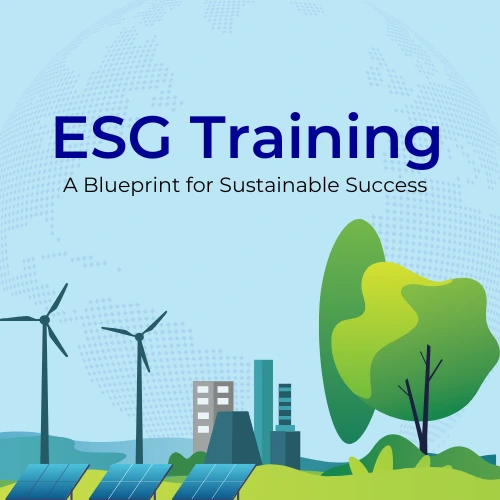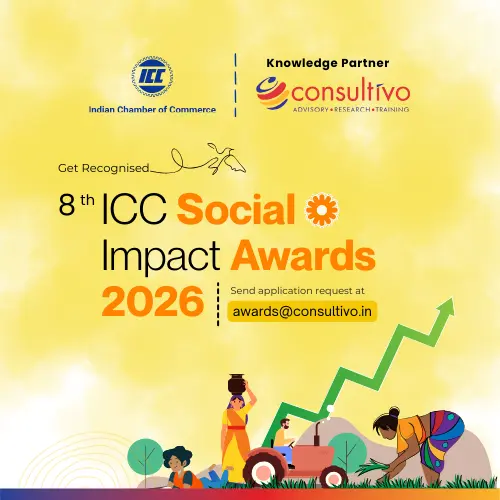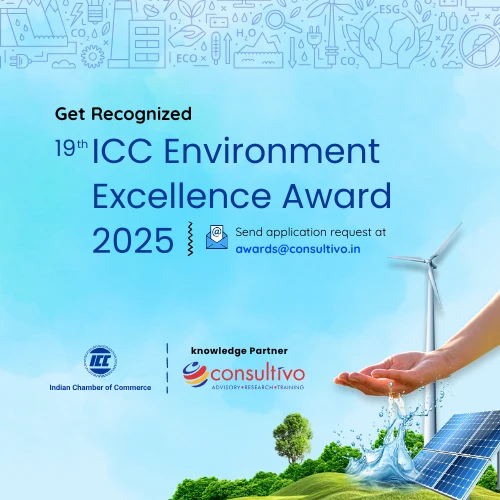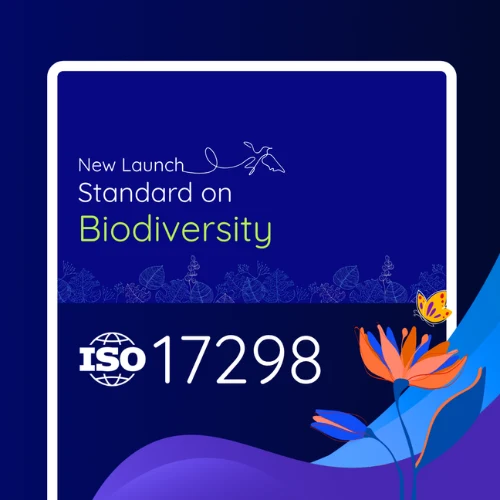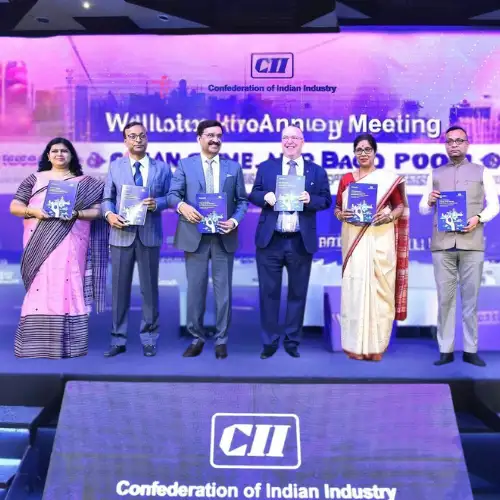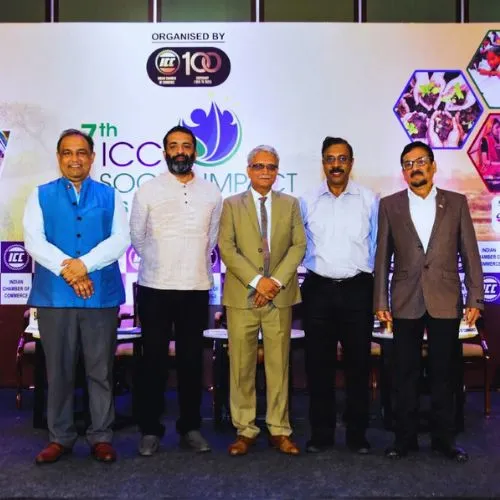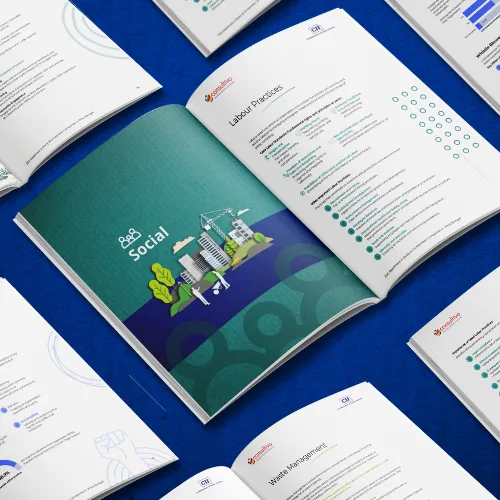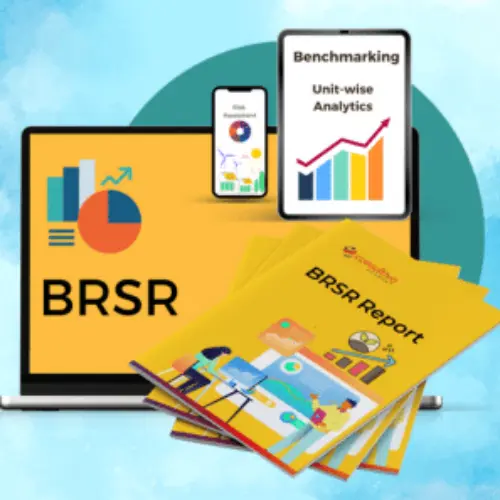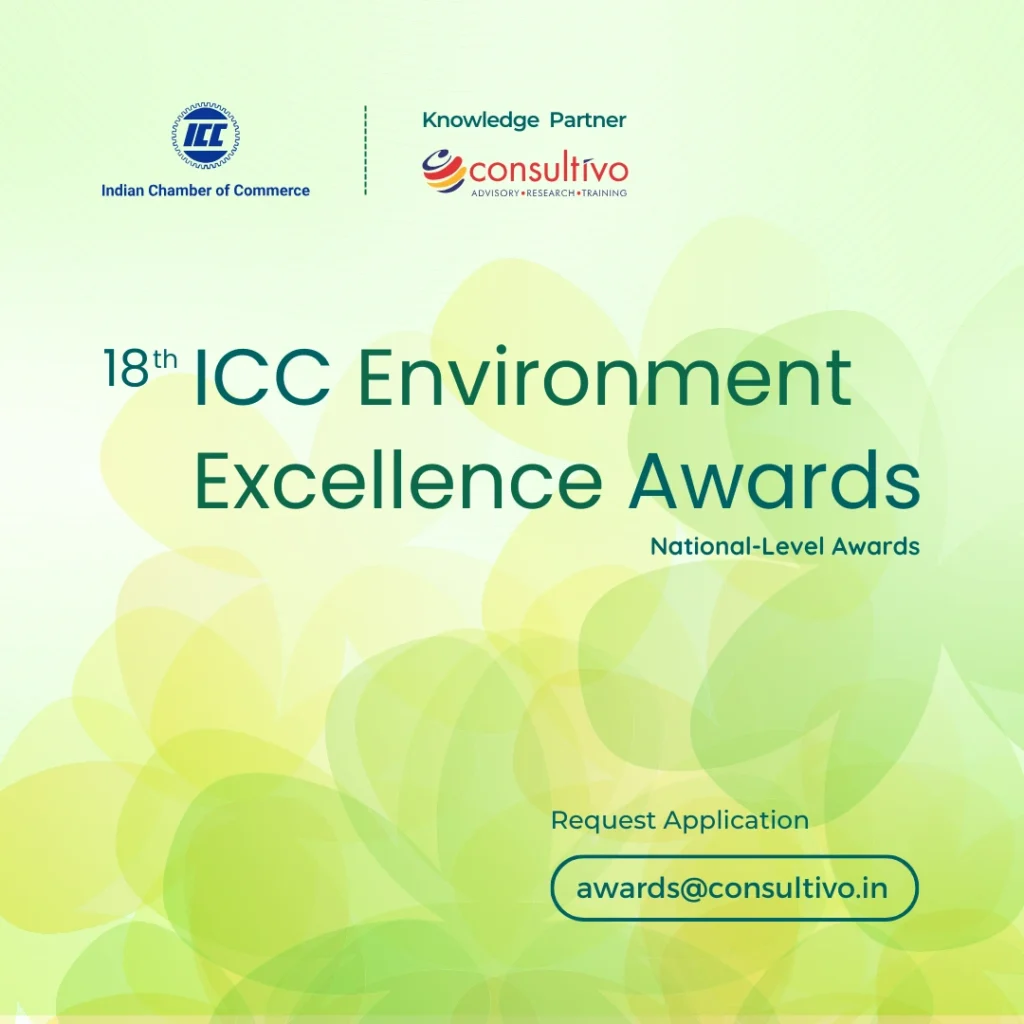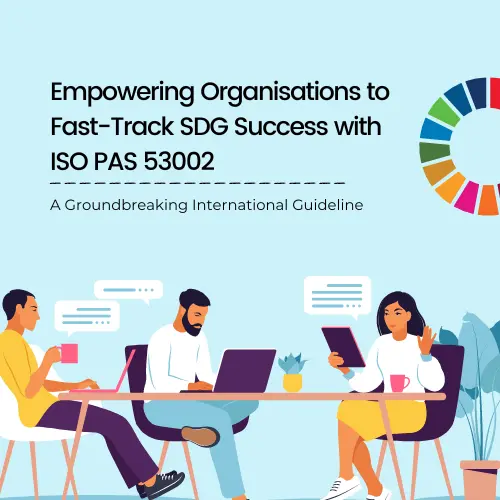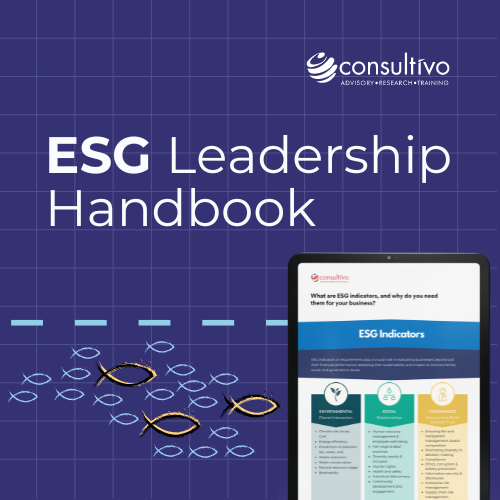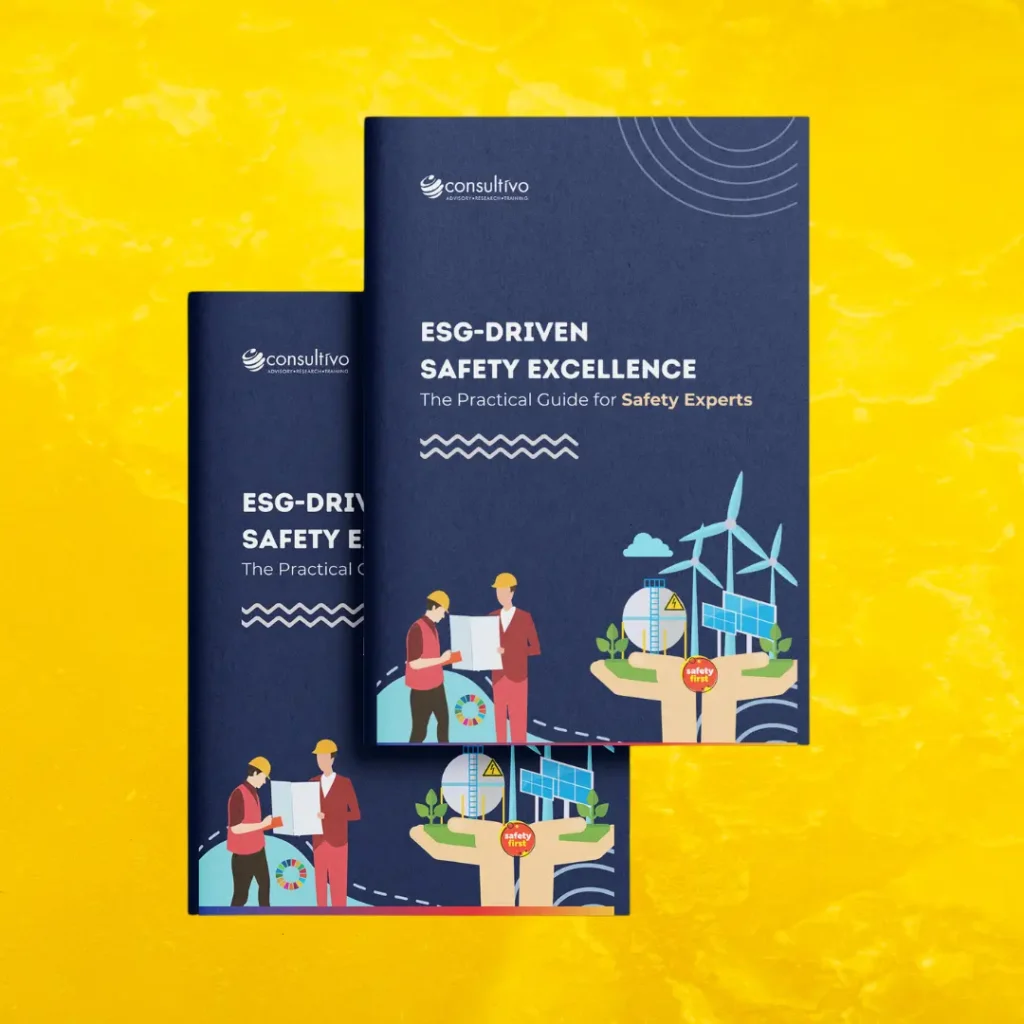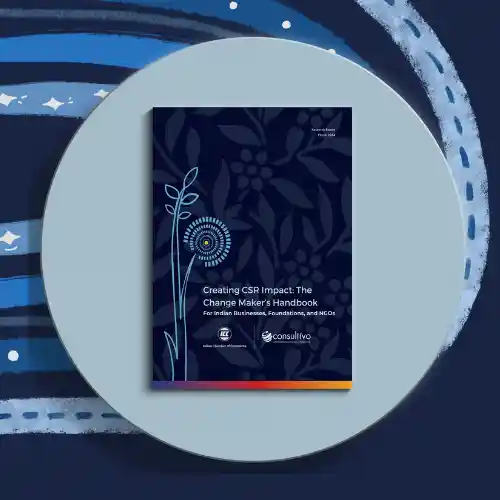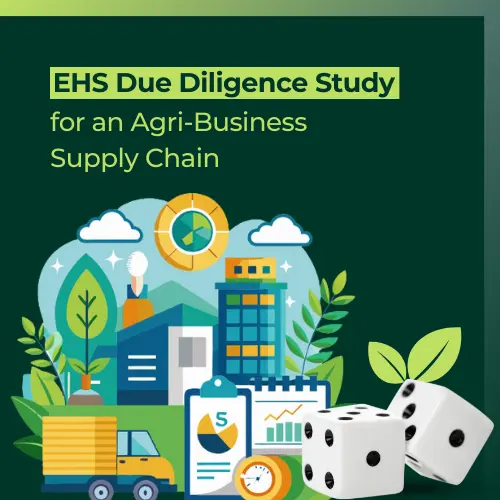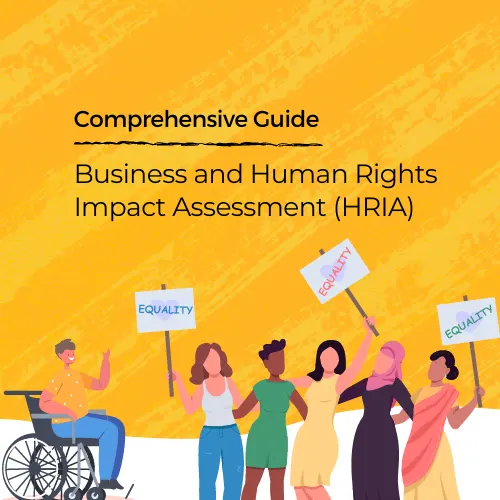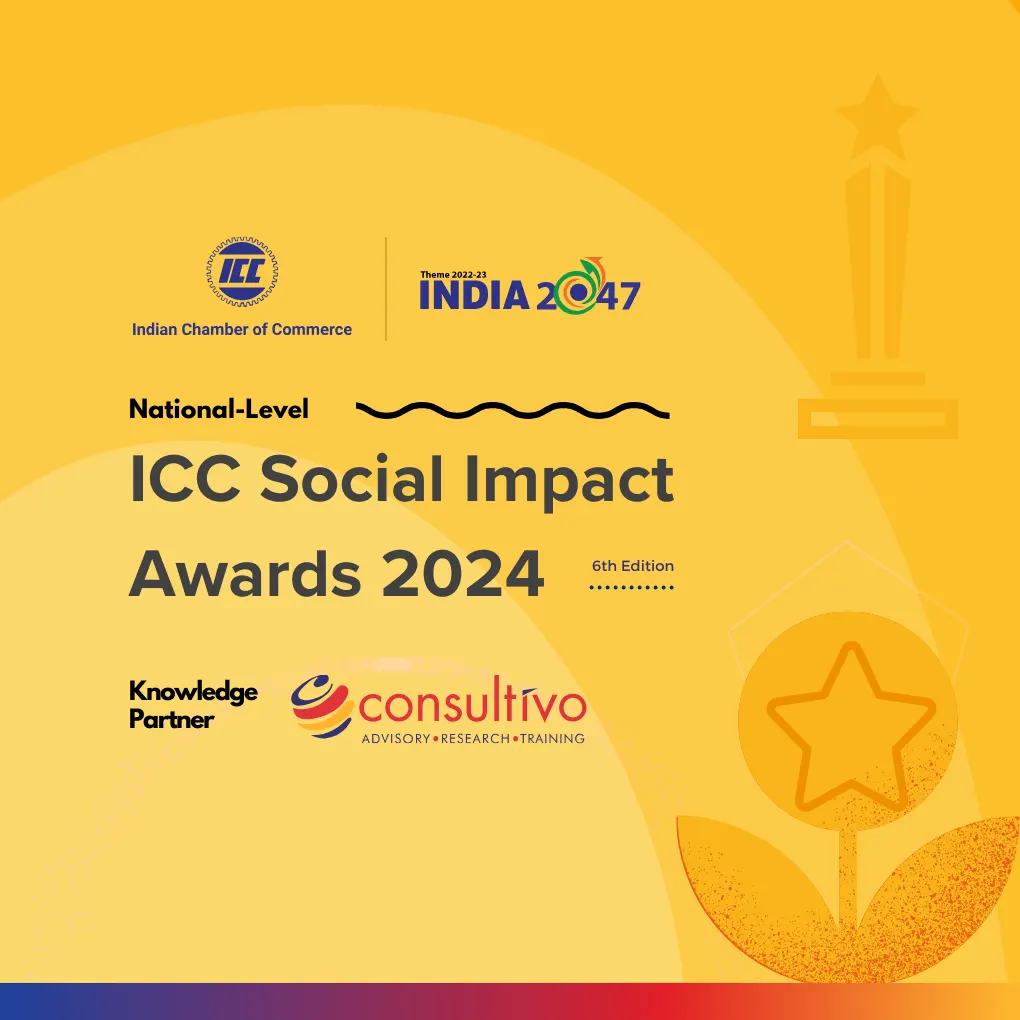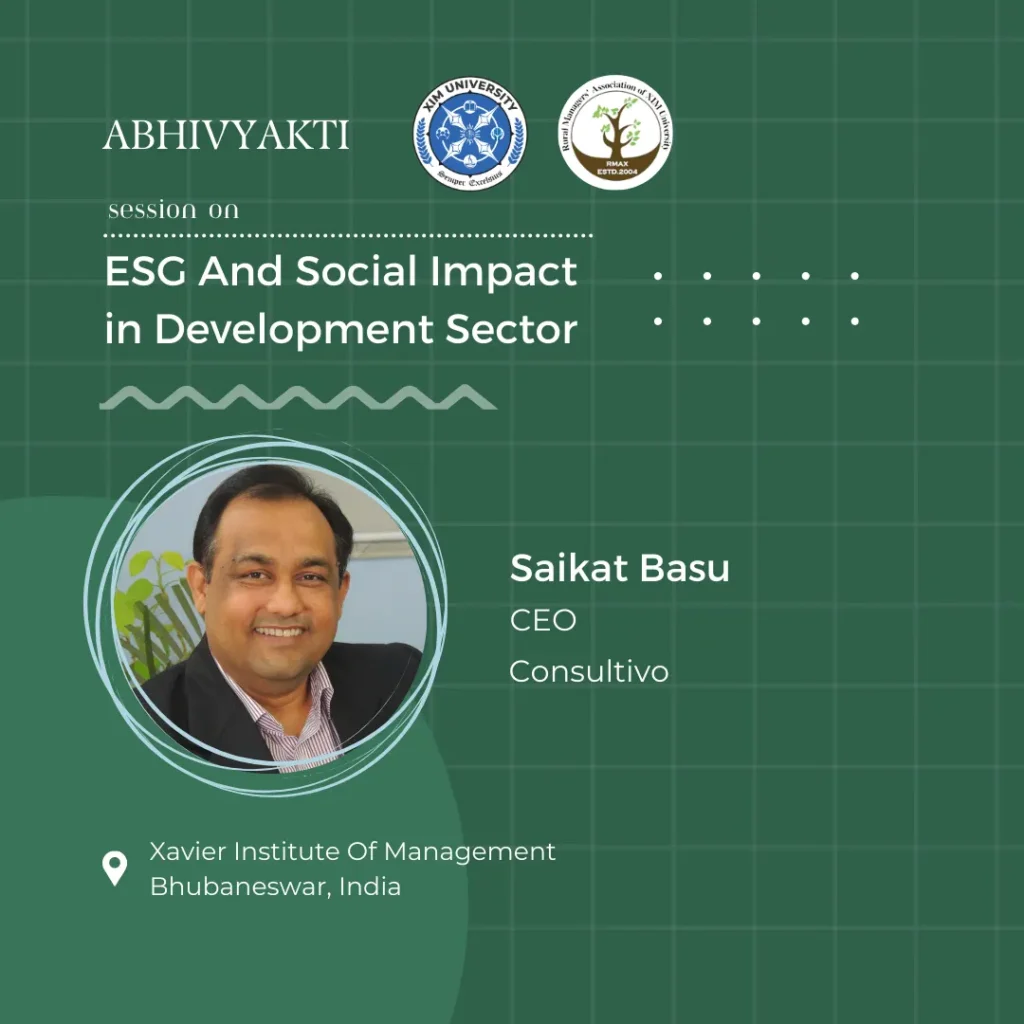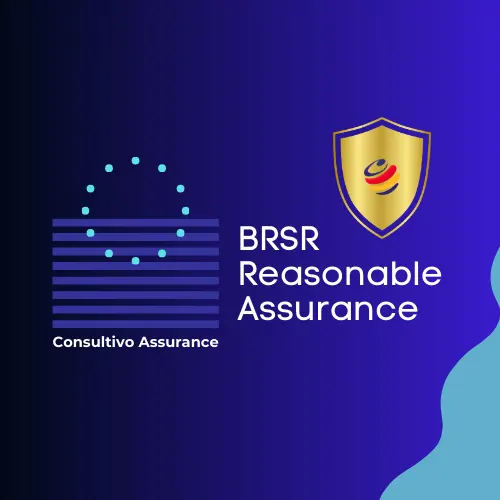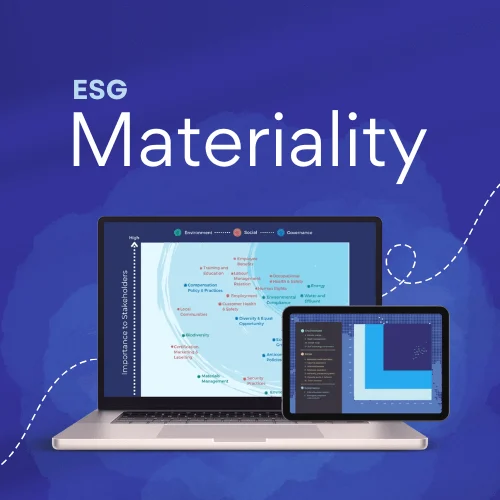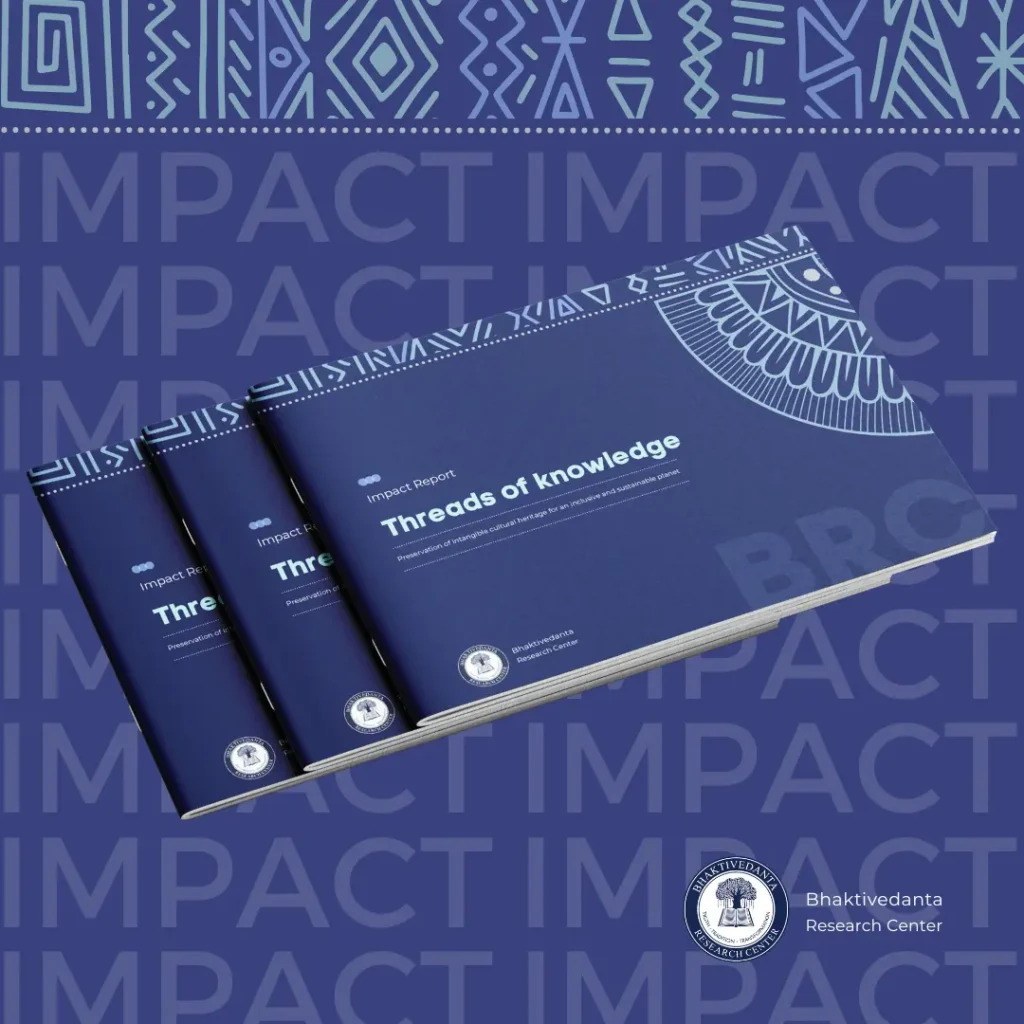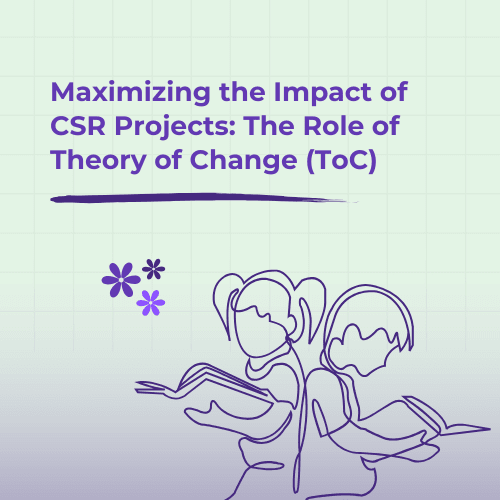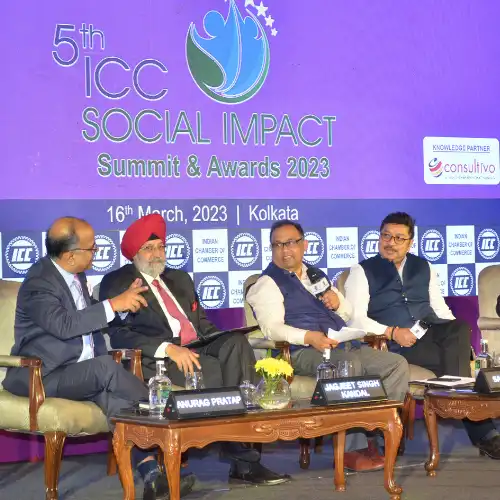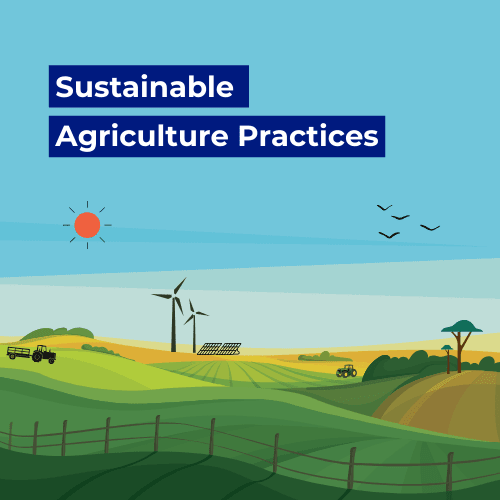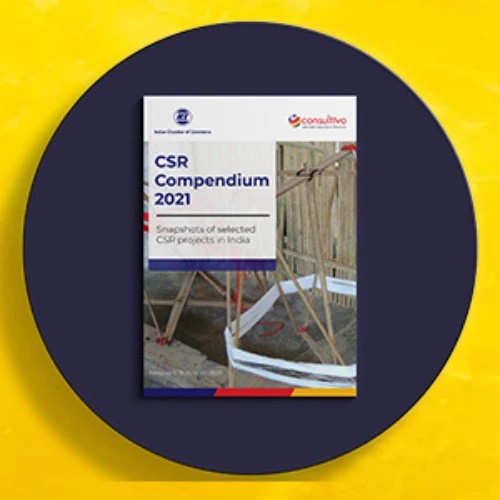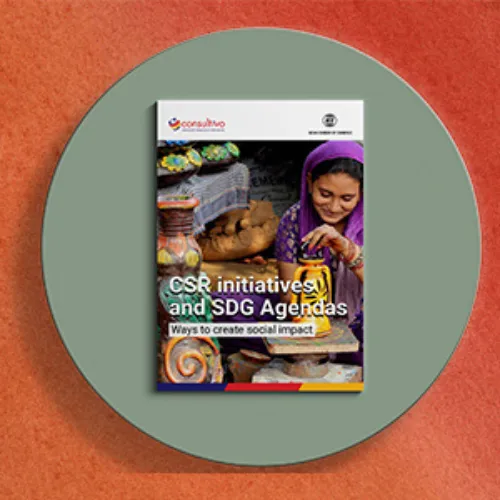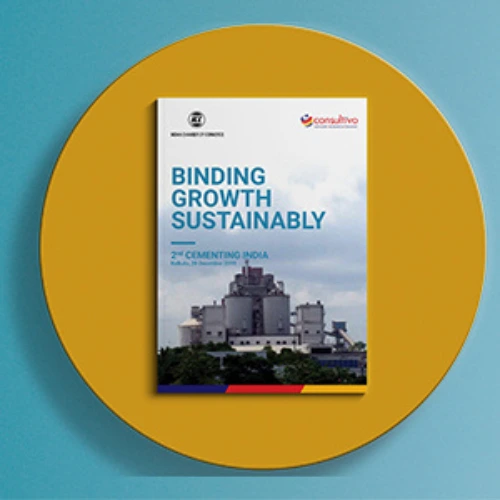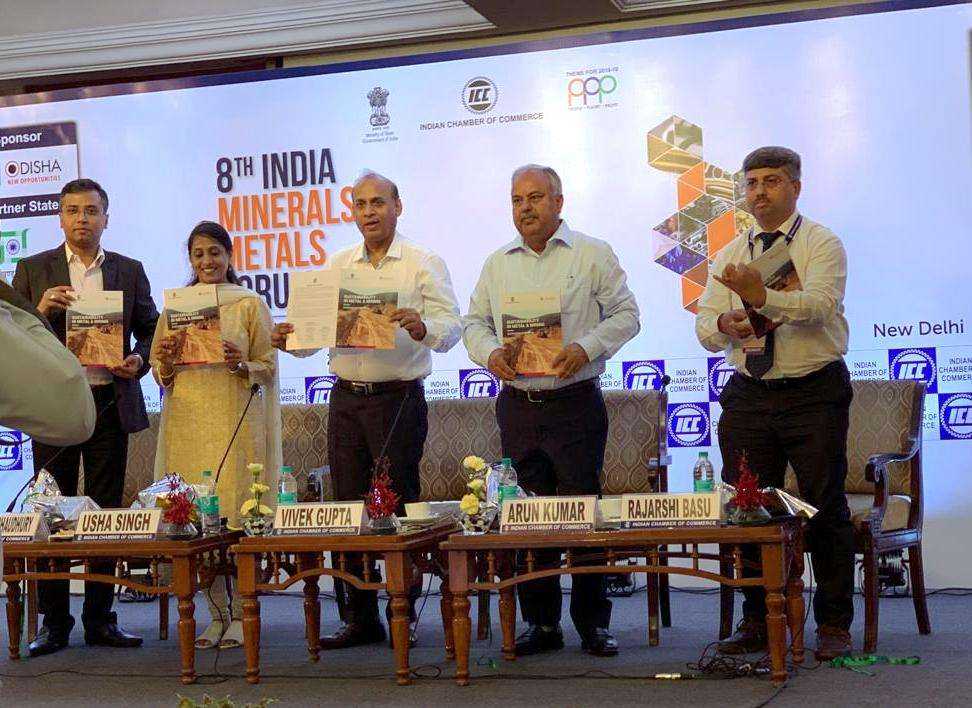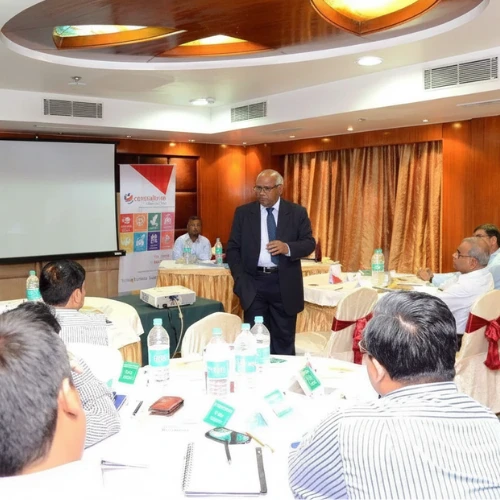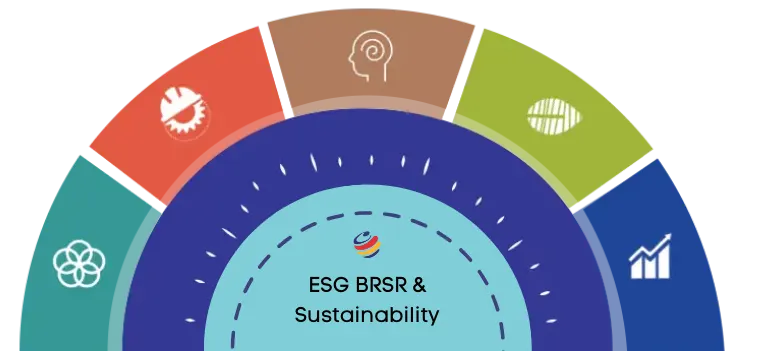
Navigate responsible business: Integrating ISO 26000 with India's ESG and CSR mandates
ISO 26000, ISO 26000 CSR, and ESG are crucial for sustainable business in India. Discover how aligning the voluntary ISO 26000 framework can significantly strengthen your CSR obligations and enhance your overall ESG performance in the Indian context.
What you will find here
Unlock stronger ESG and CSR in India by leveraging ISO 26000’s comprehensive guidance
In today’s dynamic business landscape in India, organisations are facing increasing pressure to operate responsibly. This goes beyond mere profit generation and encompasses their impact on the environment, society, and governance.
Terms like ESG (Environmental, Social, and Governance) and CSR (Corporate Social Responsibility) are no longer buzzwords but integral aspects of sustainable business practices.
This article explores how the internationally recognised standard, ISO 26000, can significantly strengthen your ESG and CSR initiatives in India.

Understanding the foundations: ISO 26000, CSR, and ESG
Before we delve into the synergy, let’s briefly understand each concept:
CSR (Corporate Social Responsibility)
In the Indian context, CSR is often viewed through the lens of the Companies Act, 2013, which mandates certain companies to spend a percentage of their profits on specified social and environmental activities.
While legally driven, effective CSR goes beyond mere compliance and aims to create positive societal impact.
ESG (Environmental, Social, and Governance)
ESG is a broader framework used by investors and stakeholders to evaluate an organisation’s sustainability and ethical impact.
It encompasses a wide range of factors, including environmental conservation, labour practices, human rights, community relations, and corporate governance.
ISO 26000
ISO 26000 is an international standard providing guidance on social responsibility. As the document “Discovering ISO 26000 – Guidance on social responsibility.pdf” highlights, it’s a voluntary standard offering a framework for organisations in both the public and private sectors to operate in a socially responsible manner and contribute to sustainable development.
It provides guidance on principles and core subjects of social responsibility.

The powerful link: ISO 26000 and your ESG & CSR in India
While CSR in India has a legal underpinning, and ESG is an evaluation framework, ISO 26000 provides the “how-to” guide for achieving genuine social responsibility that underpins both. Here’s how ISO 26000 can strengthen your ESG & CSR in India:
Providing a comprehensive framework
ISO 26000 outlines seven core subjects of social responsibility:
- Organisational governance
- Human rights
- Labour practices
- The environment
- Fair operating practices
- Consumer issues
- Community involvement and development
These core subjects directly align with the pillars of ESG. For instance:
- “The environment” directly addresses the ‘E’ in ESG.
- “Human rights” and “Labour practices” fall under the ‘S’ (Social) in ESG.
- “Organisational governance” aligns with the ‘G’ (Governance) in ESG.
- “Fair operating practices,” “Consumer issues,” and “Community involvement and development” contribute significantly to the ‘S’ aspect and ethical conduct expected within ESG.
By adopting the ISO 26000 framework, organisations in India can ensure a holistic approach to their ESG considerations, moving beyond a fragmented approach.

Need help tailoring your approach?
Enhancing the “Social” in ESG and CSR
The “Social” aspect of ESG and the focus areas of CSR often involve complex stakeholder relationships and societal impacts. ISO 26000 provides valuable guidance on:
1. Understanding stakeholder needs
ISO 26000 emphasises identifying and engaging with stakeholders, a crucial element for effective CSR and a key component of the ‘S’ in ESG. By understanding the needs and expectations of communities, employees, customers, and other stakeholders, organisations can develop more relevant and impactful CSR initiatives.
2. Addressing human rights and labour practices
As highlighted in ISO 26000, respecting human rights and ensuring fair labour practices are fundamental to social responsibility. This directly contributes to the ‘S’ pillar of ESG and forms the ethical backbone of responsible CSR activities.
3. Fostering community involvement
ISO 26000 specifically addresses “Community involvement and development.” This aligns perfectly with many of the activities mandated under the Indian CSR framework, such as education, health, and skill development. By following the guidance of ISO 26000, organisations can ensure their community-focused CSR projects are strategic, sustainable, and truly beneficial.
Strengthening governance and ethical conduct
The “Governance” aspect of ESG and ethical conduct are crucial for building trust and ensuring long-term sustainability. ISO 26000 places significant emphasis on “Organisational governance” and “Fair operating practices.” By adhering to these principles, organisations can:
1. Improve transparency and accountability
ISO 26000 encourages transparency in decision-making and accountability for social and environmental impacts, key elements of good governance within ESG.
2. Promote ethical behaviour
The guidance on “Fair operating practices” within ISO 26000 encourages ethical conduct in dealings with other organisations, preventing corruption and promoting fair competition. This strengthens the ethical foundation of both ESG and CSR initiatives.
Driving sustainable development
As explicitly stated in the ISO 26000 standard and the guidance document, the objective of social responsibility is to contribute to sustainable development. ISO 26000 provides a roadmap for organisations to integrate social and environmental considerations into their core business strategies, aligning perfectly with the overarching goal of ESG and responsible CSR.
Enhancing stakeholder trust and reputation
In today’s increasingly conscious marketplace, stakeholders – including investors, customers, employees, and communities – are paying close attention to an organisation’s social and environmental performance. By adopting ISO 26000 and integrating its principles into their ESG and CSR initiatives, organisations in India can:
1. Build credibility
Demonstrating a commitment to internationally recognised guidelines like ISO 26000 enhances the credibility of your CSR and ESG efforts.
2. Improve reputation
Operating in a socially responsible manner, guided by ISO 26000, can significantly enhance your organisation’s reputation and build stronger relationships with stakeholders.
3. Attract investment
Investors are increasingly incorporating ESG factors into their decision-making processes. A strong alignment with ISO 26000 can make your organisation more attractive to ESG-focused investors.
Implementing ISO 26000 for stronger ESG & CSR in India: Key steps
While ISO 26000 is a voluntary standard, its principles can be strategically integrated into your ESG and CSR framework in India. Here are some key steps:
1. Understand the guidance
Familiarise your organisation with the principles and core subjects outlined in ISO 26000. The ISO 26000 – Guidance on social responsibility.pdf provides a good starting point.
2. Conduct a gap analysis
Assess your current CSR activities and ESG practices against the guidance provided in ISO 26000 to identify areas for improvement.
3. Prioritise material issues
Based on stakeholder engagement and your organisation’s impact, identify the most relevant core subjects and issues within ISO 26000 to focus your efforts.
4. Integrate into strategy and operations
Embed the principles of ISO 26000 into your organisation’s overall strategy, policies, and procedures.
5. Engage stakeholders
Establish effective communication and engagement mechanisms with your stakeholders to understand their expectations and incorporate their feedback into your ESG and CSR initiatives.
6. Measure and report
Develop metrics to track the effectiveness of your ESG and CSR efforts, aligned with the guidance of ISO 26000, and report transparently to stakeholders.
A synergistic approach for responsible growth in India
In conclusion, ISO 26000 offers a robust and internationally recognised framework that can significantly strengthen your ESG and CSR initiatives in India.
While the legal mandate drives CSR spending, and ESG provides the evaluation lens, ISO 26000 offers the practical guidance to ensure your efforts are comprehensive, ethical, and truly contribute to sustainable development.
By embracing the principles of ISO 26000, Indian organisations can move beyond mere compliance towards genuine social responsibility, building trust, enhancing reputation, attracting investment, and ultimately contributing to a more sustainable and equitable future for all.
Consultivo can help your organisation navigate this journey and effectively integrate ISO 26000 into your ESG and CSR strategies.

Let's discuss
Share this post
About the author
Director – Sustainable Solutions at Consultivo
Madhabi Guha specialises in the domains of ESG, Social Compliance, Business and Human Rights, Development Projects and focuses on supporting go-to-market teams along with customer and partner relationships. She has been working in the sustainability & business excellence advisory business for over 14 years.
Madhabi has been developing individuals, teams, and organisations in the areas of leadership, excellence and human factors in the field of sustainability, people and community.
Related insights
View more in Impact Stories | Blogs | Knowledge Bank | News and Events




